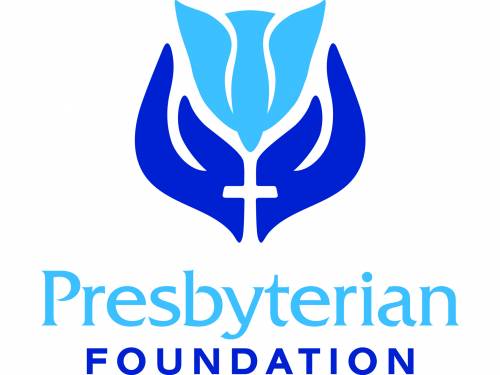Socially responsible investments put faith into action
by Erin Dunigan | Presbyterian Foundation
Editor’s note: This story is one in a series about ways the Foundation is using its investments to work for greater change in the care and keeping of the earth we inhabit. It originally appeared on the Presbyterian Foundation website.
 Investments can do well – the Presbyterian Foundation believes – and do good at the same time. Through practices of impact investing, corporate engagement, and use of positive and negative screens, the Foundation seeks to manage all aspects of the funds entrusted to them in accordance with God’s call for faithful stewardship. The Foundation’s trustees determined in 2015 that care for God’s creation is one element of this stewardship.
Investments can do well – the Presbyterian Foundation believes – and do good at the same time. Through practices of impact investing, corporate engagement, and use of positive and negative screens, the Foundation seeks to manage all aspects of the funds entrusted to them in accordance with God’s call for faithful stewardship. The Foundation’s trustees determined in 2015 that care for God’s creation is one element of this stewardship.
In June 2015, the Foundation sent a letter to its money managers directing them to incorporate environmental factors into their investment process. This includes engaging with company management about how climate change could affect their business, incorporate the impact of an investment’s carbon footprint on prospective returns and to consider the impact of potential government and regulatory policies on prospective investment returns.
The letter also shared with managers the Presbyterian Church (U.S.A.) value of social witness, recognizing human worth and dignity, honesty in the production and manufacture of goods and services, stewardship of natural resources, and a focus on peacemaking.
Adding a layer
Anita Clemons, Vice President and Managing Director of Investments for the Presbyterian Foundation, describes the letter’s request as “adding an extra layer.” Rather than just asking, “Is a company making a profit?” the Foundation is asking to go a step further and consider how environmental, social and governance factors are impacting a business before selecting it for investment.
“It is adding an extra layer of research, not just about expectations of how a company will perform tomorrow, but how business activities today will impact the world in the future?” Clemons says. Environmental, Social and Governance (ESG) factors must be considered as indicators of the company’s sustainability, she said.
Companies have at least three areas in which they can make a positive or negative impact: the environment, the communities in which they operate, and their employees, Clemons said. Each of these adds a variety of factors to be considered when investing in a particular company.
A positive response
The Foundation received positive responses from many of the managers, explaining the ways they would or already did consider these factors in their processes.
Jody Forsyth, Managing Partner of Annapolis Capital Limited, said environmental, social and governance screening is core to Annapolis’ business. “At Annapolis, a critical investment criterion is that our investing teams embrace a commitment to strong and effective ESG management,” Forsyth said. “That is just good business practice; but we also believe there to be a correlation, over time, between investment returns and a management level focus on ESG issues (i.e. management teams that focus on ESG issues possess a discipline that also drives out above average returns).”
Clemons of the Foundation said it is crucial for churches and Presbyterian ministries to consider how the companies they invest in behave.
“If you are a donor and you are giving money to a fund that will benefit your church, you want that donation to be stewarded well,” she said.
This includes smart investing, but also emphasizes the importance of Presbyterian values in that investment.
“If the church were to go out with the intent of ‘Let’s make the most money without regard to anything else’ then values would go out the window,” Clemons said. “Employees could be harmed, communities might be ruined, and harm come to the environment.”
Many seeking responsible companies
Many investment managers are already taking these environmental, social and governance issues into account in their decision-making processes. Signatories of the United Nations Principles for Responsible Investment pledge to consider environmental, social and governance factors during their decision-making process. Many investors are coming to realize that companies that routinely violate environmental regulations and exhibit governance issues have a greater potential for negative risk, and thus are not good investments in either the fiduciary or the socially responsible sense.
“Why does this matter?” Clemons said. “It matters as a fiduciary and in the Presbyterian Foundation’s responsibility for gifts entrusted to it. Money managers have historically referred to our accounts as God’s money. We must faithfully invest these dollars in a way that continues to support mission in a responsible way.”
![]() You may freely reuse and distribute this article in its entirety for non-commercial purposes in any medium. Please include author attribution, photography credits, and a link to the original article. This work is licensed under a Creative Commons Attribution-NonCommercial-NoDeratives 4.0 International License.
You may freely reuse and distribute this article in its entirety for non-commercial purposes in any medium. Please include author attribution, photography credits, and a link to the original article. This work is licensed under a Creative Commons Attribution-NonCommercial-NoDeratives 4.0 International License.
Categories: Presbyterian News Service
Tags: environment, foundation, investing, pcusa, presbyterian, presbyterian foundation, socially responsible investing, sri